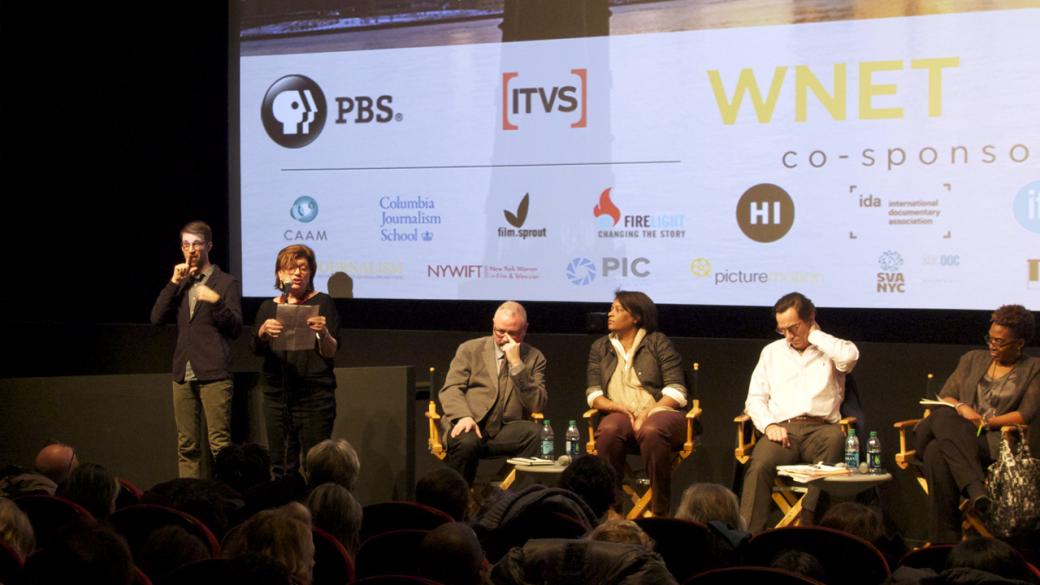New Day Filmmakers Advocate for Indie Voices on PBS

PBS's National Listening Tour stops off in NYC
New Day filmmakers are joining colleagues across the country urging educators, librarians and organizers to tell PBS why they need independent social issue films.
PBS, recently accused of lessening their commitment to independent film, is now holding a "National Listening Tour," soliciting input on the place of indie film on public television.
The tour's first stop was in San Francisco on January 17, where about 200 filmmakers, educators, organizers and documentary lovers let PBS know they are upset about the recent attempt by New York's WNET to push POV and Independent Lens -- the two indie documentary shows -- onto WLIW, its smaller, secondary station. The shows would also continue on WNET, but in a late-night time slot.
After filmmakers protested the decision, WNET postponed it, and organized the Listening Tour. While PBS officials repeatedly told the audience they support independent film, many of the filmmakers were skeptical. They insisted that losing support from WNET -- public television's flagship station -- would make it increasingly impossible for them to make films. Furthermore, they suggested that by going along with WNET's plan, PBS tacitly supported it.
At the January 23 New York stop on the listening tour, New Day Films member Tami Gold told PBS officials:
What is at stake by PBS decreasing its commitment to independent documentary films is the loss of one of the last remaining outlets for alternative views and independent thinking on American television. Primetime programs like POV and Independent Lens are more important now than ever. Most documentaries bring to light widespread injustices, their human consequences and underlying causes. They tell stories that are all too often hidden among the thousands of vacuous TV stations and programs.

New Day filmmaker Tami Gold takes center stage
Many filmmakers are calling on PBS to require primetime "common carriage" for Independent Lens and POV -- meaning that major stations in each market would have to run the shows at the same time. They argue that only common carriage can attract national media -- and a national audience -- to a film.
In San Francisco, New Day Films member Susan Stern said, “What we’ve been hearing from our members and other documentary makers is that common carriage in prime time is the baseline. We need that. We want to work with you, because we think the audience is there. We think that’s what people want.”
Gold also made the point that while PBS is expanding its offerings on digital platforms, millions of people can’t access their programming that way. “Some of the people in our documentary Every Mother’s Son wanted to join us today to talk about what it has meant to have their stories broadcast on national primetime PBS, but they couldn’t rsvp for this very meeting because they don’t have internet acccess,” she said.
While the exchange between filmmakers and PBS was pointed, some of the most poignant testimony came from people who use independent film. In San Francisco Esta Soler, founder of Futures Without Violence, one of the world's leading violence prevention agencies, said at-risk youth are inspired when they see films about incarcerated low-income people of color who turn their lives around. "If you want to see students engaged -- put on a documentary," Soler said.
Chris Armes, a young public health student, agreed. Armes suffered a childhood disability that rendered him mute, and isolated in front of the TV. He said he was saved by documentaries. "Don't take away the voice of the voiceless," Armes said.
The next listening tour will be in Chicago in March (date TBD). To attend or contact PBS on behalf of independent film, go to the website to preserve indie film on PBS: IndieCaucus.org